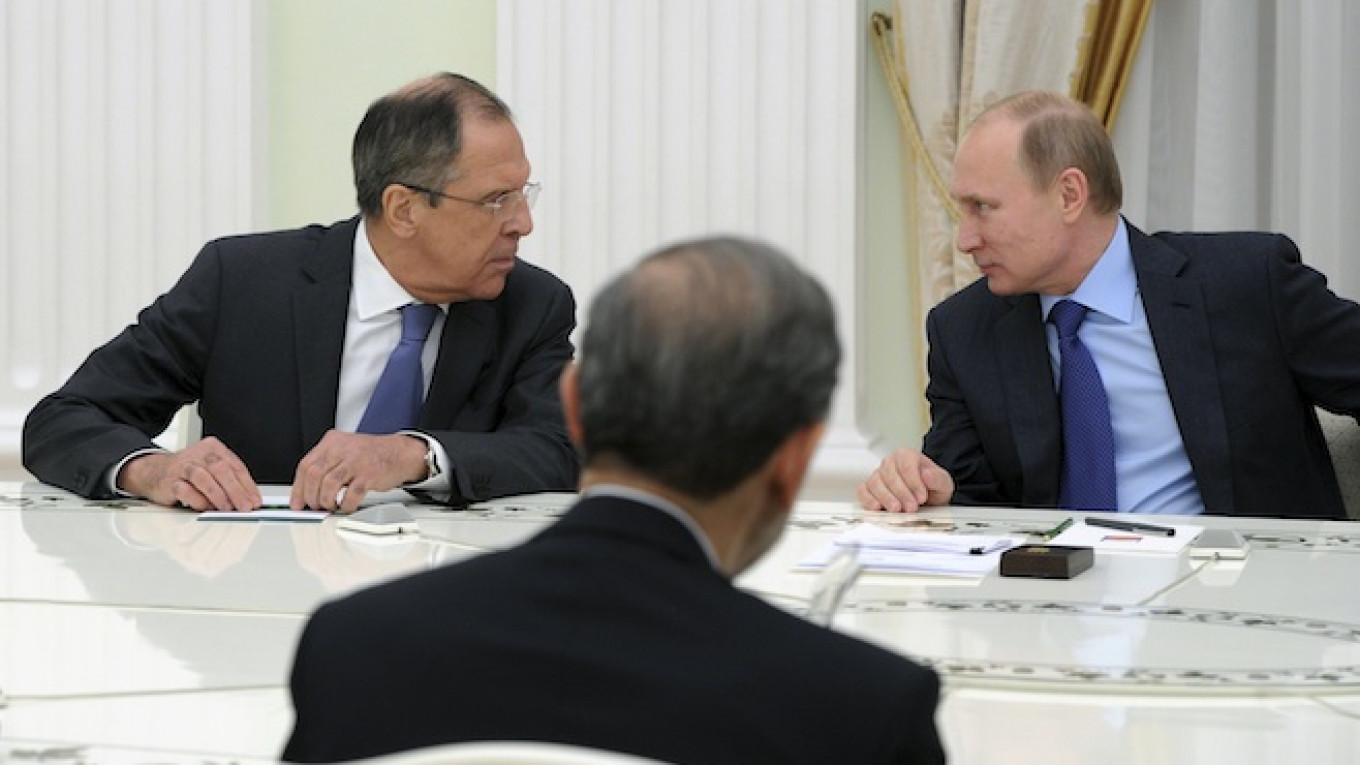Russia said on Thursday that it had barred four more U.S. citizens from its territory in retaliation for Washington's decision to expand the number of Russians blacklisted over suspected human rights abuses.
Last month, the United States added four names to the so-called Magnitsky list, named after lawyer Sergei Magnitsky who died in a Russian jail in 2009 after uncovering tax fraud allegedly involving Russian officials. The list is meant to punish Russian human rights violators by barring their entry to the United States and freezing their assets there.
Russia has responded to the Magnitsky list by barring a number of U.S. citizens from entering its own territory.
"The latest extension of the (U.S.) list of sanctioned people, put together on the basis of the anti-Russian Magnitsky Law, will not go unanswered. And on a reciprocal basis, the same number of U.S. citizens have been prohibited from entering the territory of Russia," the Russian Foreign Ministry said.
In its statement, the ministry also cited the case of a Russian citizen arrested in the Maldives last summer at Washington's behest as an example of what it called the United States' readiness to violate human rights.
The statement repeated criticism of Washington over U.S. economic sanctions imposed against Russia over the Ukraine crisis, which has plunged bilateral relations into their deepest crisis since the Cold War.
"One would like to hope that the United States, which has played around too much with sanctions, will finally realize the futility of such a policy," the Foreign Ministry said.
"We once again confirm that from now on we will react harshly to any attack against Russia."
The United States and its allies accuse Moscow of sending troops and weapons to support pro-Russian separatists battling Kiev's troops in eastern Ukraine. Russia denies this.
A Message from The Moscow Times:
Dear readers,
We are facing unprecedented challenges. Russia's Prosecutor General's Office has designated The Moscow Times as an "undesirable" organization, criminalizing our work and putting our staff at risk of prosecution. This follows our earlier unjust labeling as a "foreign agent."
These actions are direct attempts to silence independent journalism in Russia. The authorities claim our work "discredits the decisions of the Russian leadership." We see things differently: we strive to provide accurate, unbiased reporting on Russia.
We, the journalists of The Moscow Times, refuse to be silenced. But to continue our work, we need your help.
Your support, no matter how small, makes a world of difference. If you can, please support us monthly starting from just $2. It's quick to set up, and every contribution makes a significant impact.
By supporting The Moscow Times, you're defending open, independent journalism in the face of repression. Thank you for standing with us.
Remind me later.






